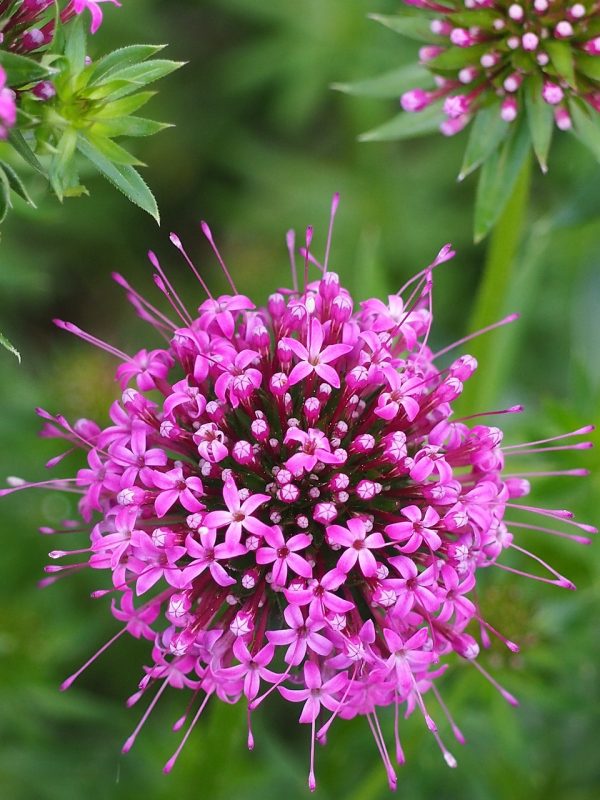Transforming your bedroom into a serene oasis can significantly impact your sleep quality, and one of the most effective ways to achieve this is by incorporating indoor plants that promote relaxation and tranquility. Not only do plants purify the air, but many also release soothing scents or create a peaceful ambiance that can help you unwind after a long day. Below you’ll find an assortment unique indoor plants that appeal to your senses and help cultivate a restful environment.
Lavender
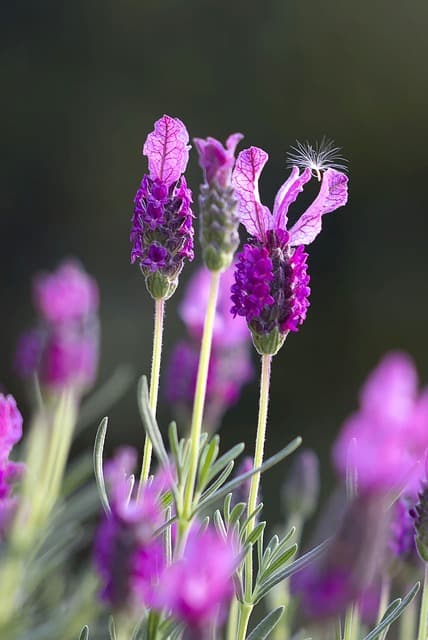
Lavender is often heralded for its calming properties. This delicate flowering plant emits a sweet floral scent that is renowned for its ability to reduce anxiety and promote relaxation. Studies have shown that inhaling lavender’s aroma can improve sleep quality and increase the duration of deep sleep. Having a small lavender plant on your windowsill or a sachet of dried lavender near your pillow can create a tranquil atmosphere conducive to sleep.
Snake Plant (Sansevieria)
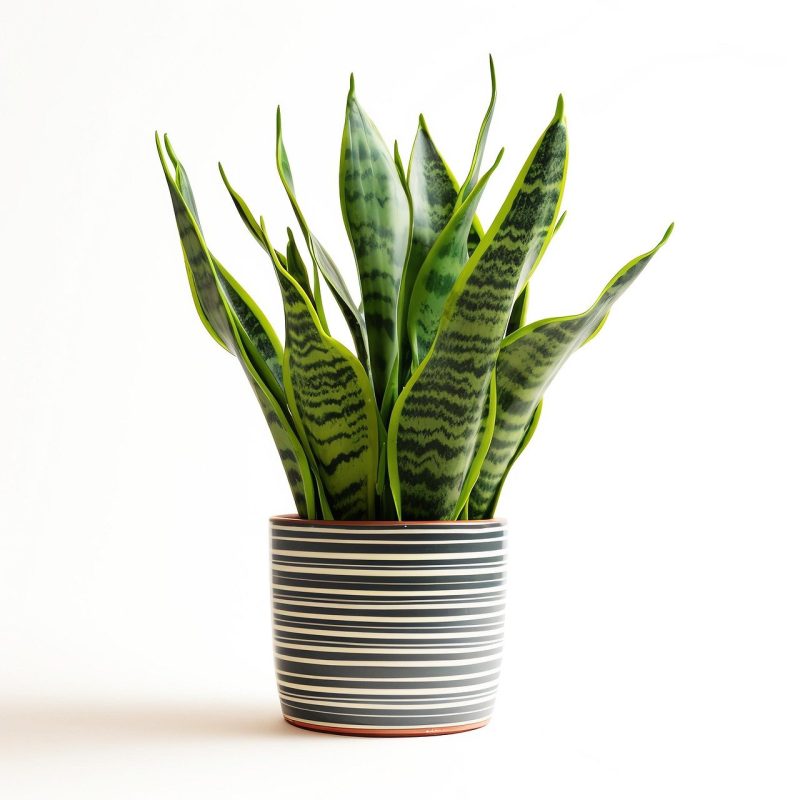
The snake plant, also known as mother-in-law’s tongue, is a robust indoor plant that is almost impossible to kill. Its unique ability to convert CO2 into oxygen at night makes it an ideal addition to the bedroom. This nocturnal oxygen production helps purify the air, making it easier to breathe and improving overall sleep quality. Additionally, its tall, slender leaves create a calming aesthetic in any space.
Peace Lily
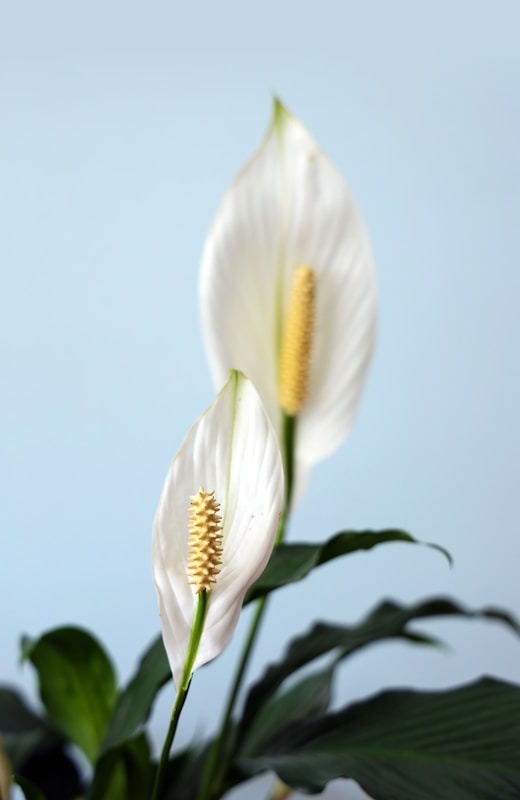
Peace lilies are not only visually appealing with their glossy leaves and elegant white flowers, but they also act as natural air purifiers. They are effective at filtering out harmful toxins such as formaldehyde and benzene. Maintaining clean air contributes to a restful sleep environment. Furthermore, peace lilies thrive in low light, making them perfect for bedrooms that might not get a lot of natural sunlight.
Chamomile
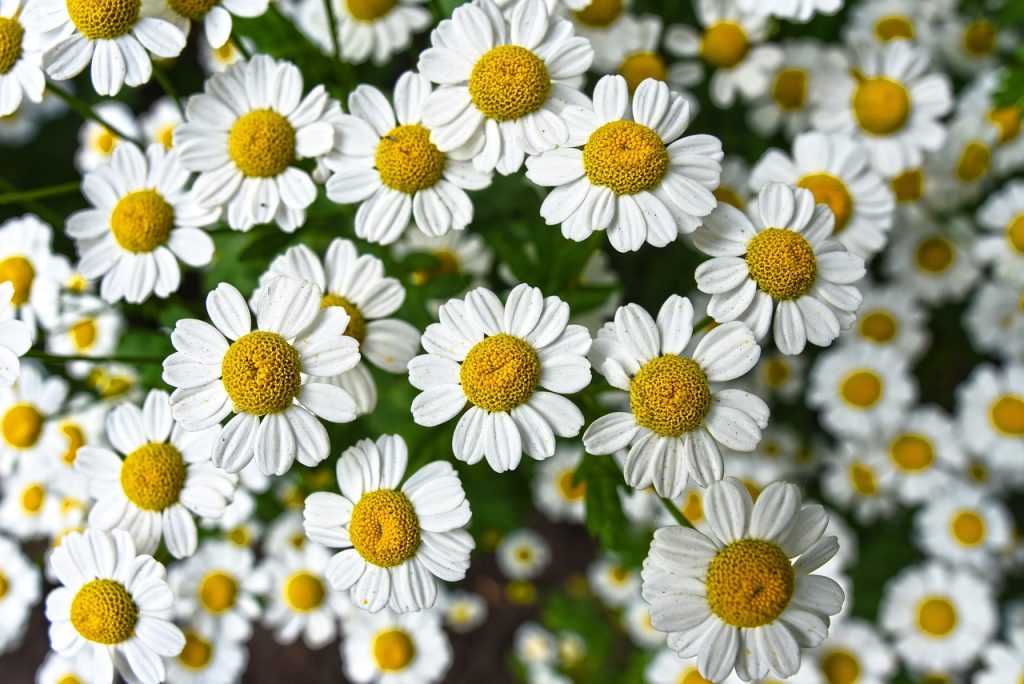
Chamomile is more than just a soothing tea; its flowers can also be grown indoors. This sweet-smelling herb releases a gentle, apple-like fragrance that can reduce stress and promote relaxation. The scent of chamomile increases feelings of tranquility and can enhance sleep. Planting chamomile in a small pot can add a touch of beauty and serenity to your bedroom while bringing along its sleep-enhancing properties.
Spider Plant (Chlorophytum comosum)
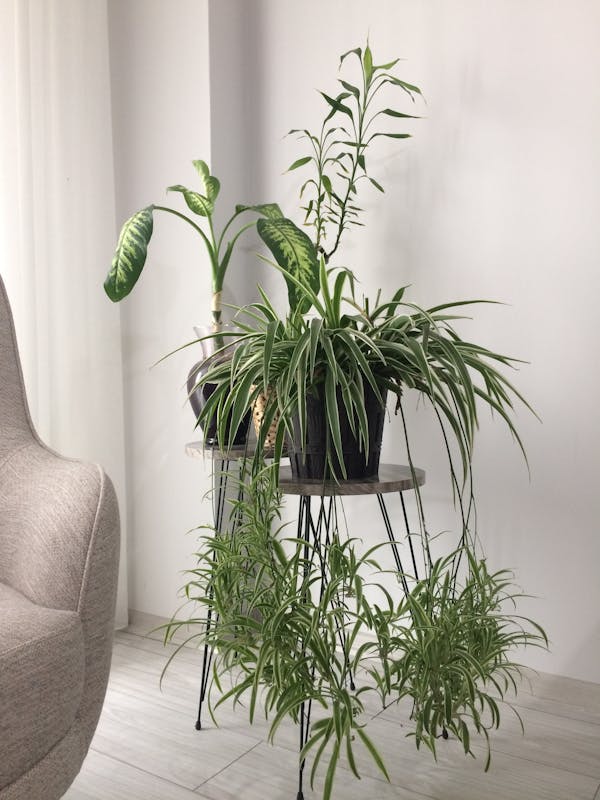
The spider plant is celebrated for its air-purifying capabilities. It effectively removes pollutants and improves indoor air quality, which can greatly enhance sleep. Its charming arching leaves and tiny “spiderettes” make it a favorite for indoor gardens. Spider plants are hardy and easy to care for, making them suitable for those who may not have a green thumb but still want to reap the benefits of indoor greenery.
Valerian Root
Valerian is a traditional herbal remedy known for its sedative properties, and it’s often used in sleep aids and supplements. Growing valerian root indoors can offer a natural alternative for those who struggle with insomnia. This plant produces small pink to white flowers that release a distinctive scent recognized by many as calming. It’s most effective when allowed to thrive in a sunny spot, reminding you of its soothing potential.
Jasmine
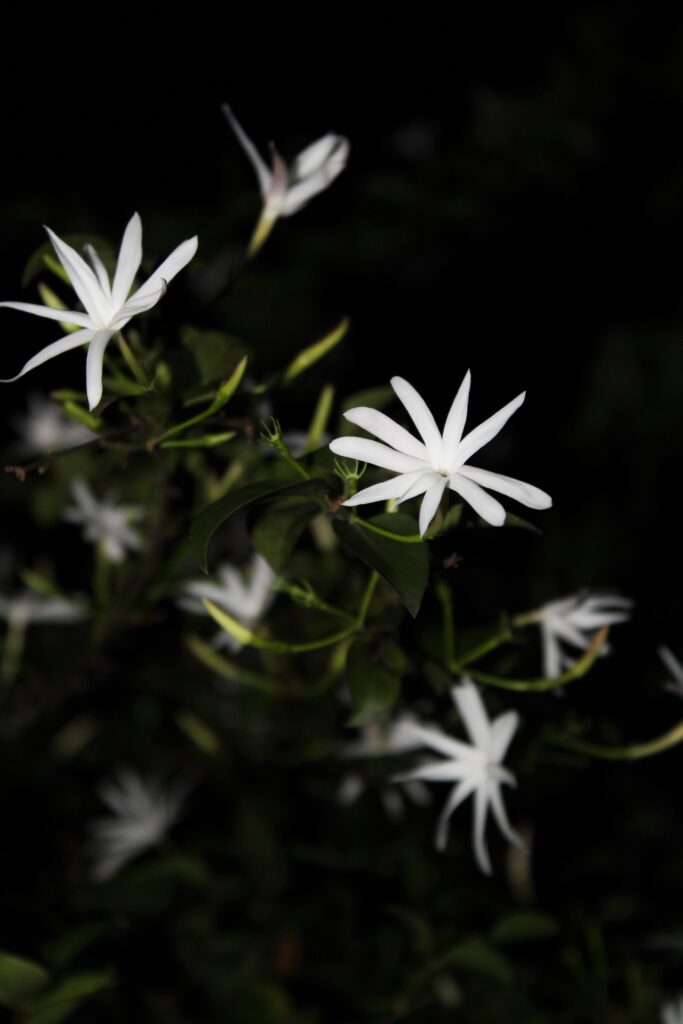
Jasmine, particularly the kind grown from the species Jasminum sambac, releases a sweet, romantic fragrance that has been linked to improved sleep quality. The scent of jasmine has been shown to lower anxiety levels and promote relaxation, making it easier to drift off to sleep. This climbing plant can be grown in a pot or a hanging basket, creating an enchanting atmosphere in your bedroom while delivering sleep benefits.
Aloe Vera
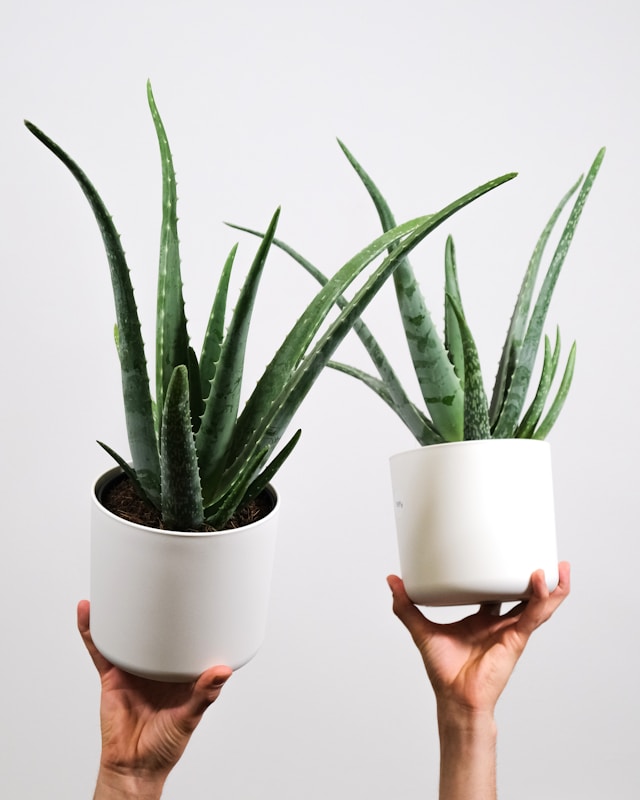
Aloe vera is well known for its healing properties, but it’s also a great addition to your sleep space. This succulent improves air quality and emits oxygen at night, which can lead to a more restful sleep environment. Moreover, aloe vera is incredibly easy to care for; it requires minimal watering and thrives in bright but indirect light, making it a perfect choice for busy individuals looking to enhance their sleep.
Rubber Plant (Ficus elastica)
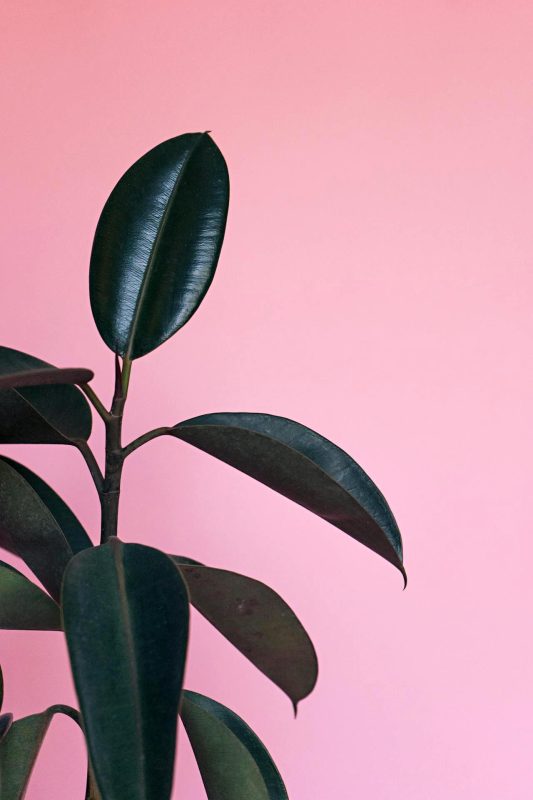
The rubber plant is an elegant addition to any bedroom, featuring glossy, dark green leaves that add sophistication to your decor. It’s particularly efficient at removing airborne toxins, creating cleaner air for better sleep quality. The rubber plant thrives on medium to low light, making it adaptable to various bedroom conditions. Not only does it purify the air, but it also contributes to a relaxing and harmonious atmosphere.
Scented Geranium
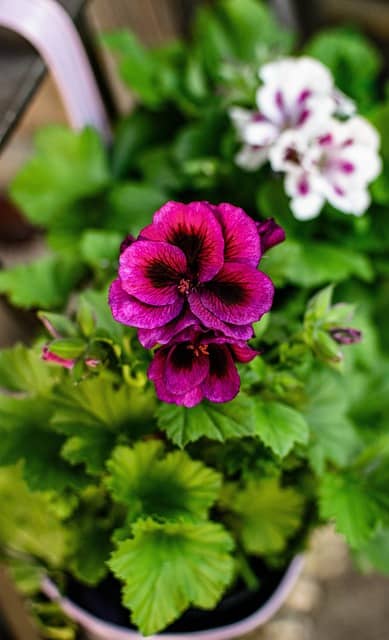
Scented geraniums are a delightful option for indoor gardeners because they provide lovely foliage and an array of delightful scents, ranging from rose to mint. The soothing fragrances released by these plants can evoke calmness and contribute to relaxation. Just gently rubbing the leaves releases their fragrance, and the act of caring for them can also be a meditative practice, aiding your journey to restful sleep.
Pot Marigold (Calendula)
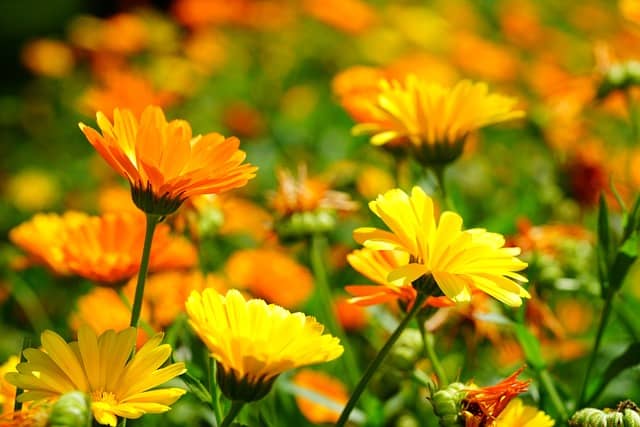
Pot marigold is a vibrant and cheerful flower that not only adds color to your indoor space but also has calming properties. Known for its soothing effect on the nervous system, calendula has been utilized historically to promote relaxation. Including pot marigold in your bedroom can enhance the visual appeal while contributing to a peaceful atmosphere, encouraging tranquility and sleep.
Golden Pothos (Epipremnum aureum)
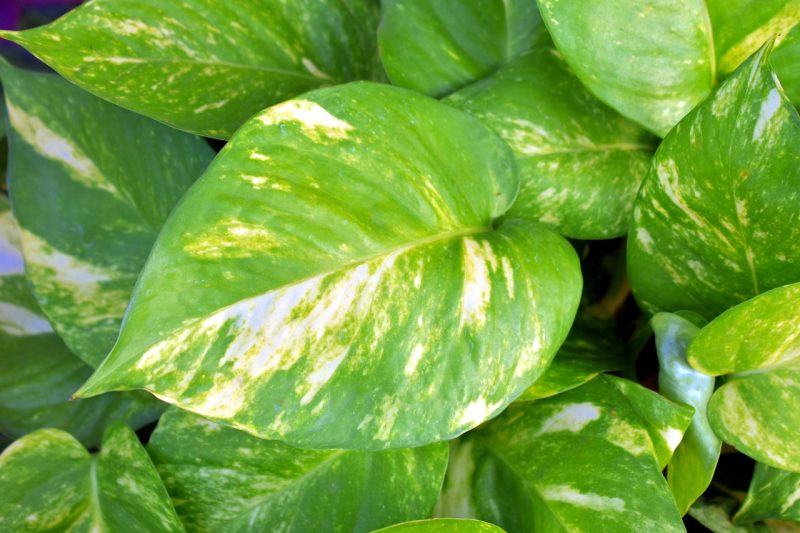
Golden pothos is an incredibly popular houseplant known for its adaptability and easy care. This fast-growing vine thrives in various lighting conditions and is famed for its air-purifying qualities. Pothos removes indoor air pollutants, including formaldehyde and xylene, which can help improve the overall air quality in your bedroom. Its heart-shaped leaves bring a touch of nature indoors, creating a visually calming environment that can promote better sleep.
Hoya (Wax Plant)
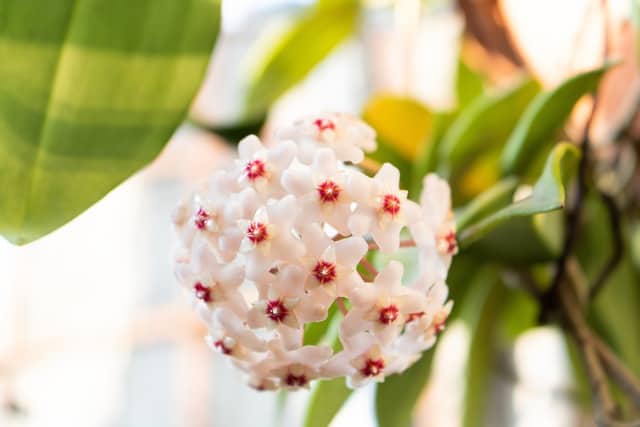
Hoya, commonly known as the wax plant due to its thick, waxy leaves and clusters of star-shaped flowers, is an excellent choice for sleepy spaces. The plant is known for its ability to filter out indoor pollutants, which contributes to a healthier atmosphere conducive to rest. Hoyas thrive in indirect light and don’t require much water, making them ideal for busy schedules. Their delightful, sweet-smelling blooms, when in season, add an aromatic touch to your nighttime routine.
Gerbera Daisy
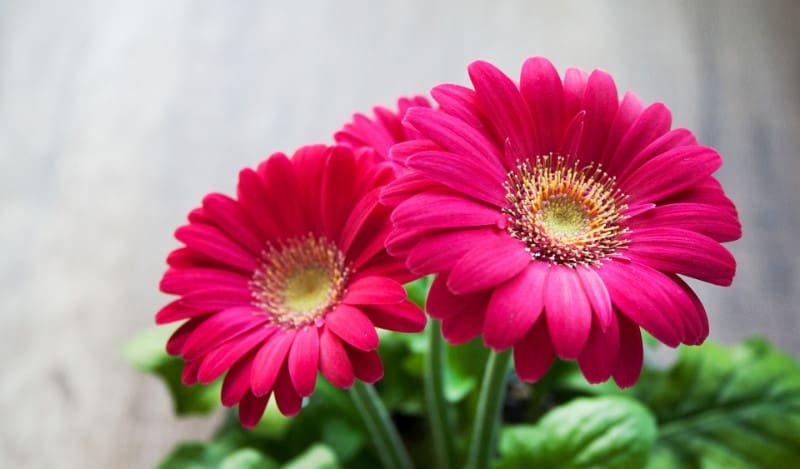
Gerbera daisies are more than just a cheerful splash of color in your home; they also play a role in promoting a serene sleeping space. These vibrant flowers release oxygen during the night, helping to improve overall air quality. Their bright hues can boost your mood during the day, while their calming presence at night helps create a soothing environment. Place gerbera daisies in a sunny spot near your window for optimal growth and maintain a fresh, inviting atmosphere in your bedroom.
Rosemary
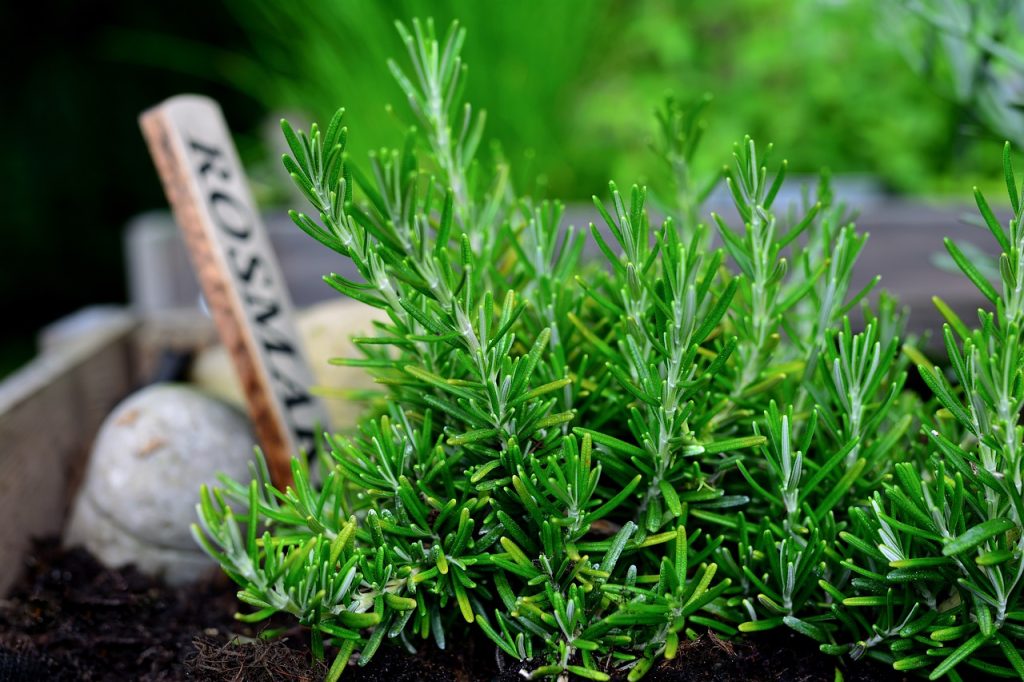
Rosemary is a well-known herb, often used in cooking, but it also has remarkable properties that can help enhance sleep quality. The aroma of rosemary has been linked to improved cognitive performance and reduced stress levels. Keeping a rosemary plant in your bedroom not only provides a lovely scent but also encourages peaceful sleep through its calming effect. Rosemary thrives best in bright light, so consider placing it on a windowsill for ample sunlight.
Bamboo Palm (Chamaedorea seifrizii)

The bamboo palm is a lovely addition to your indoor plant collection, as it thrives in indirect light and is excellent at filtering air impurities. Known for its ability to remove formaldehyde, benzene, and trichloroethylene, the bamboo palm contributes to better indoor air quality. A cleaner environment promotes better sleep. Its feathery fronds can create a relaxed atmosphere, enhancing your bedroom’s overall aesthetic and creating a sense of tranquility.
Catnip
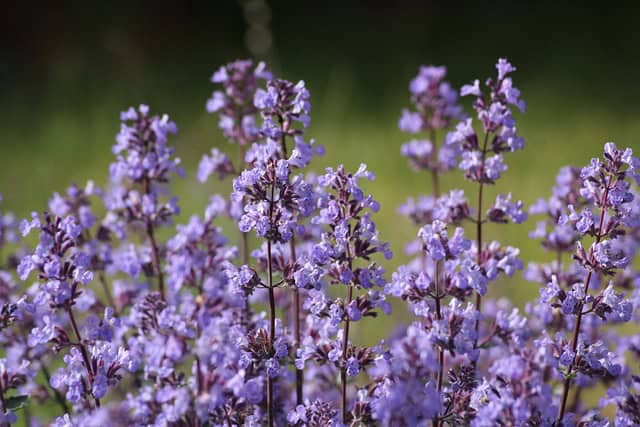
Often associated with playful felines, catnip (Nepeta cataria) possesses calming properties that can benefit us humans, too. The scent of catnip acts as a natural sedative, and its calming effects can help reduce anxiety and encourage restful sleep. While having it may attract cats, you can easily grow it in a pot near your sleeping area to benefit from its aromatic qualities. The fragrant herb can also be brewed into a soothing tea before bedtime, promoting relaxation and restful sleep.
Sago Palm
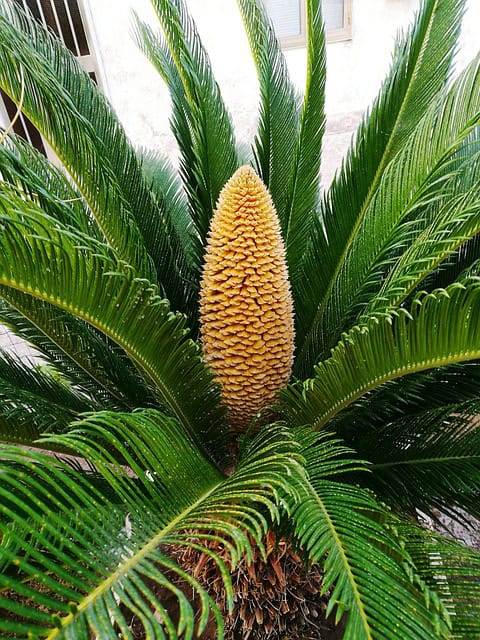
The sago palm is an eye-catching plant that offers a tropical flair to any indoor space. It thrives indoors with proper light and watering and can adapt to different light conditions. As a relatively low-maintenance plant, it doesn’t require much attention while still contributing positively to your environment. While the sago palm isn’t known for exceptional air-purifying abilities like some other plants, its presence can create a calm, serene atmosphere that may contribute to better sleep.
Ferns

Ferns, especially the Boston fern (Nephrolepis exaltata), not only enhance the aesthetic appeal of your bedroom but also add moisture to the air, helping create a more comfortable sleeping environment. They thrive in humid conditions and can do well in low-light settings. The soothing greenery of ferns can create a calming atmosphere, making your bedroom feel like a peaceful retreat. Their lush foliage also helps filter toxins from the air, ensuring a better breathability that promotes restful sleep.
Orchid
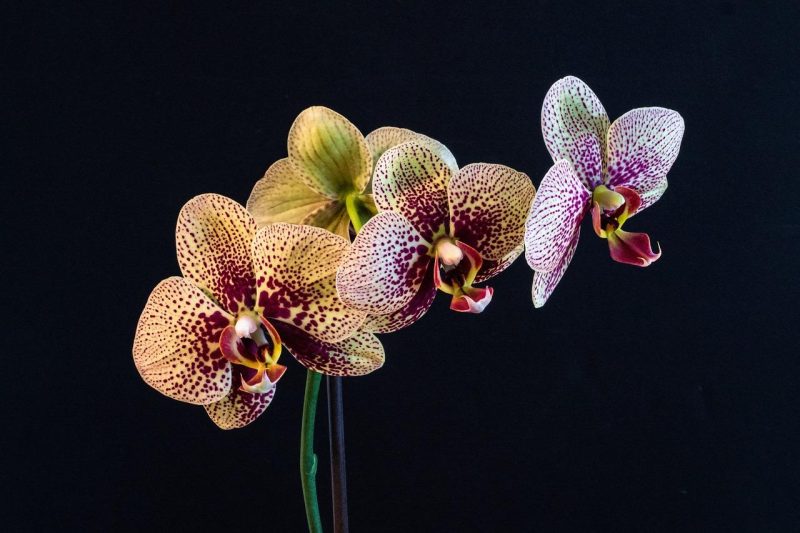
Orchids are exotic and captivating flowers that deserve a place in your bedroom. Known for their gentle beauty, orchids can also contribute to improved air quality. While they might require a bit more care than other houseplants, their visual beauty and exotic scent create a tranquil atmosphere, perfect for promoting relaxation. Floral aromas can elevate your mood and prepare your mind for a calming night’s sleep. Consider varieties such as Phalaenopsis or Dendrobium, which thrive beautifully indoors.
Chinese Money Plant (Pilea peperomioides)
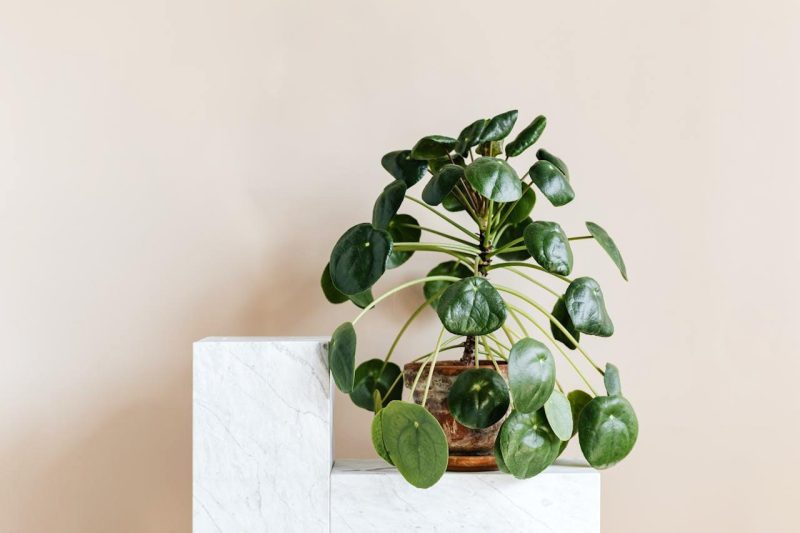
The Chinese money plant, or Pilea, is not just a quirky and trendy addition to your indoor garden; it is also considered a symbol of good luck and prosperity. This unique plant is often recognized for its round, coin-shaped leaves and minimal care requirements, making it a favorite among plant enthusiasts. Though its benefits are more symbolic, keeping this plant in your bedroom can add a touch of greenery and cheer that helps create a more soothing and comfortable environment, setting the stage for better sleep.
Air Plants (Tillandsia)
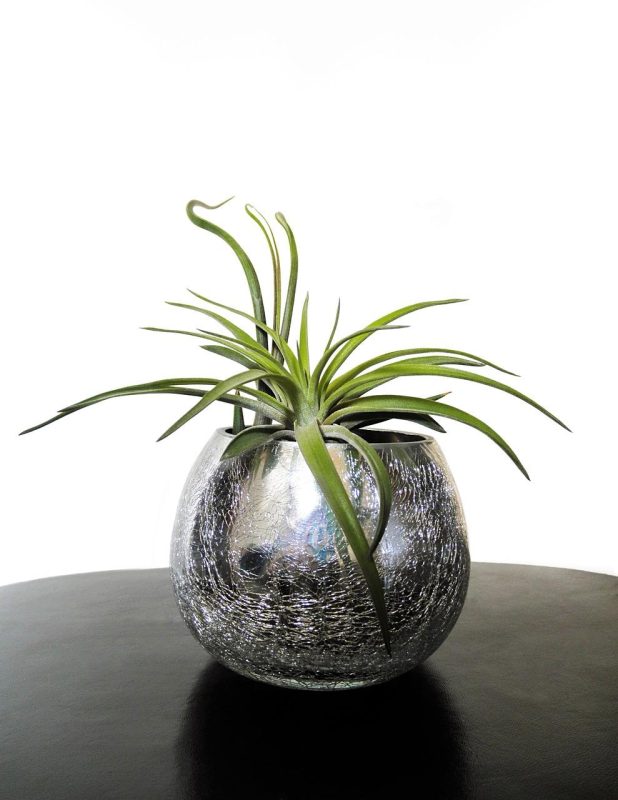
Air plants are fascinating because they don’t require soil to grow, drawing moisture and nutrients from the air around them. This unique characteristic makes them incredibly versatile for different indoor settings. Air plants thrive in bright, indirect light, and they only need to be soaked in water for about 30 minutes weekly. Their low-maintenance nature and striking appearance add a modern touch to bedroom decor. Air plants can improve indoor air quality, further aiding in creating a fresh and rejuvenating environment conducive to relaxation and sleep.
Conclusion
Integrating indoor plants into your sleeping space offers numerous benefits beyond mere aesthetics. Many of the plants listed provide air-purifying qualities and soothing fragrances that can significantly enhance your sleep quality. Creating a healthy, serene environment in your bedroom is essential for achieving restorative sleep, and these chosen plants can help you accomplish just that.
When selecting plants, consider your lifestyle, the light conditions in your bedroom, and your personal preferences regarding maintenance. Some plants may require more attention and care than others, but many options are available that thrive with minimal effort.
Incorporating greenery into your bedroom doesn’t have to be an overwhelming task. Start with one or two plants that resonate with you, and slowly build your indoor garden as you become more comfortable and confident in caring for them. The combination of fresh air, soothing scents, and the calming presence of greenery can promote a peaceful atmosphere, allowing you to unwind and achieve the sleep you deserve. So, whether you’re cultivating a lush potted garden or simply adding a few strategically placed greenery pieces, embrace the transformative power of indoor plants and enjoy the restful sleep they can help you achieve.



